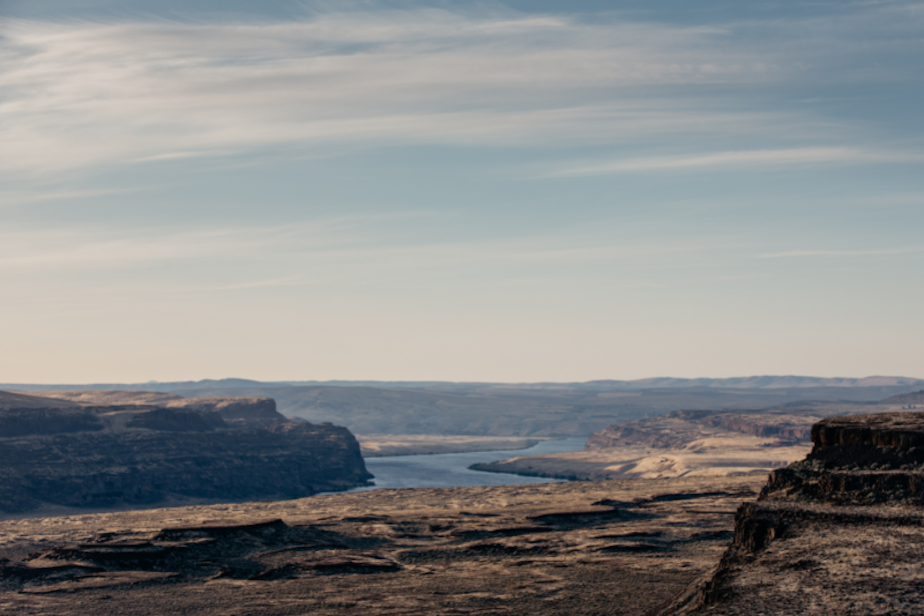What Arizona v. Navajo Nation could mean for tribal rights in the West and beyond

The Colorado River is a vital but threatened water supply — and the communities in Arizona, California, Nevada and beyond that depend on it face the prospect of having to resort to greater efforts to secure water.
Meanwhile, the Navajo Nation is trying to get access to that water — access it’s been denied, despite the fact that its lands borders the Colorado. It’s estimated that almost a third of the 170,000 people who live on reservation land cannot easily get to clean, reliable drinking water.
The Navajo Nation has sued the federal government, saying it has kept the nation from fully pursuing those water rights.
Last week, the United States Supreme Court heard oral arguments in Arizona v. Navajo Nation. The court’s decision could have significant implications for the water rights of tribes across the country, including here in the Pacific Northwest.
Soundside guest host Kim Malcolm talked to Monte Mills, professor of law at the University of Washington, and director of the UW Native American Law Center about Arizona v. Navajo Nation, and what needs to be done to modernize treaties like the Columbia River Treaty.
Mills said that two treaties the United States government entered with the Navajo Nation, in 1849 and 1868 respectively, are at the center of Arizona v. Navajo Nation. While those treaties don't explicitly mention water rights, it's been long-upheld by the Supreme Court that "when the United States reserved lands for tribes like they did ... those reservations came with water necessary to fulfill the purposes of the reservation," he explained.
Sponsored
The question being considered by the court now is whether the U.S. government is obligated to identify, protect, or deliver said water for the tribe. The Navajo Nation says it is; the U.S. maintains that its duties don't extend beyond recognizing the tribe's right to access water.
To understand where the case could be headed, it's important to interpret the treaty language as it would have been understood by signing parties at the time it was entered, Mills said.
"In this particular case, there's a very helpful amicus brief that has been filed by an association of traditional healers on the Navajo Nation that talk about some of the fundamental tribal values that would have been relevant to the tribes understanding of those treaty obligations and those treaty negotiations," he said.
On the other side, Mills said, the treaties were written in "terms that the United States was expecting and hoping for, in order to serve broader national interests." For that reason, he added, it's important to account for imbalances resulting from differences in language, culture, and power between the two parties.
"It also helps to just ensure the terms of those original promises, as opposed to saying now in 2023, 'Well, that's just an old promise, and maybe there was much more water available then. But there's no water available now so we can't really honor that under modern circumstances,'" he said.
Sponsored
The case also highlights a lack of foresight into issues like climate change and expanded use of the Colorado River on the part of the early 20th century U.S. government, Mills pointed out.
"The expectations that folks had way back in 1922 when they entered into the compact just haven't been the same," Mills said. "And so the legal structure also presents limitations and is really at the crux of this particular case, not just because the Navajo Nation hasn't had access to water from the mainstay of the Colorado — particularly in the lower basin — but because that structure has been relied upon by a number of different ... uses that people have come to expect in terms of getting water to Southern California or the Phoenix metro area, or other places."
Mills said Arizona v. Navajo Nation is a unique tribal rights case in the sense that the tribe is asking for the U.S. government to be compelled to carry out a duty, rather than pay damages related to rights reserved under a treaty.
"That issue, I think, is relevant for tribes across the country," he said.
Listen to the full interview above.





